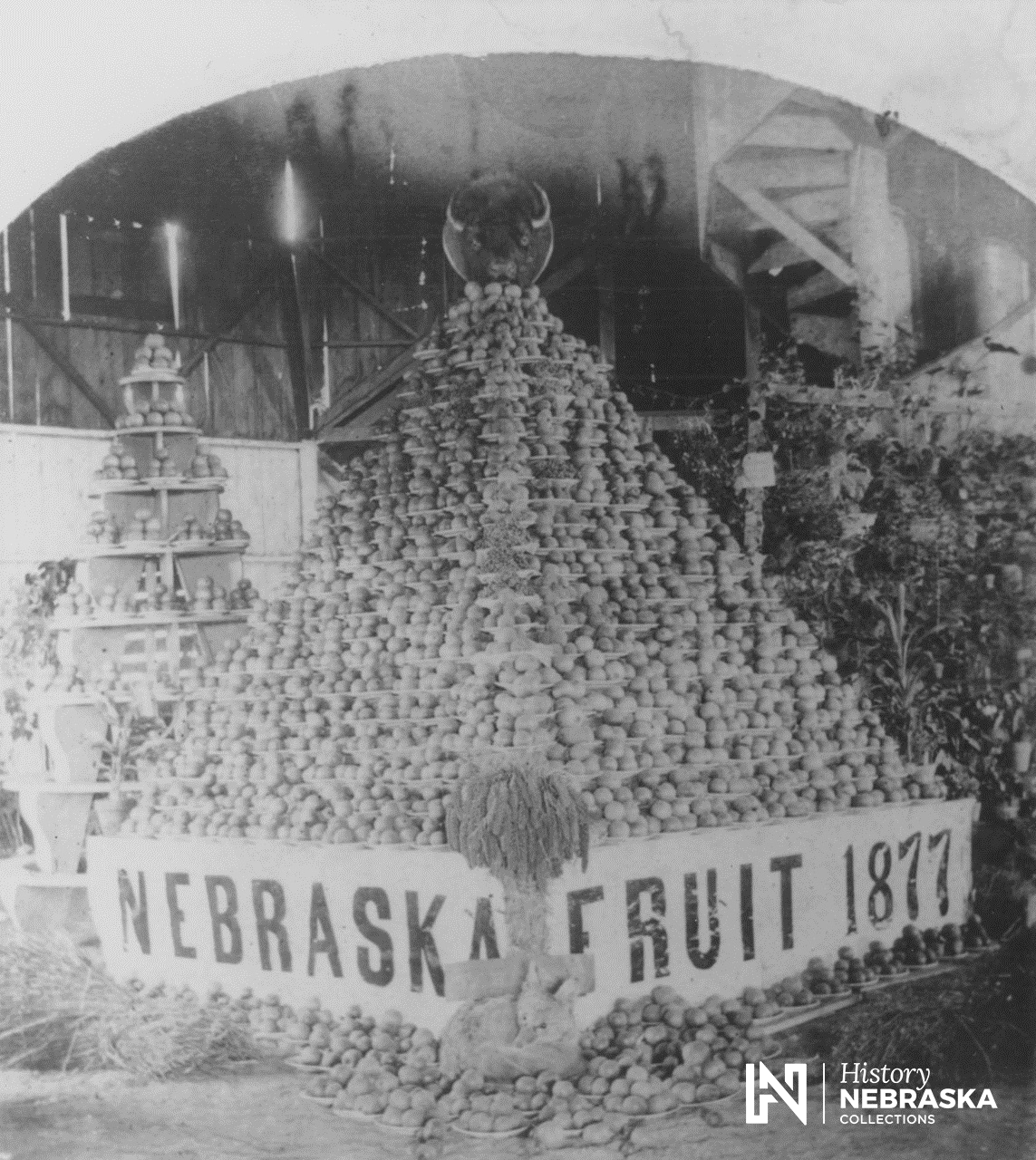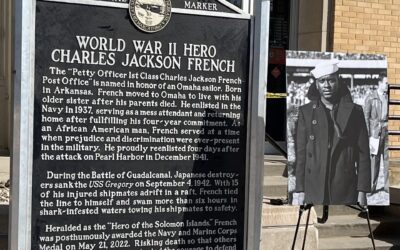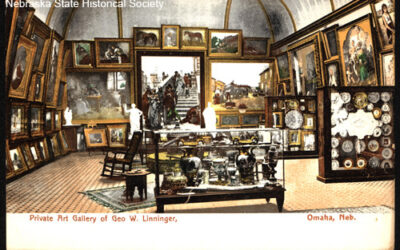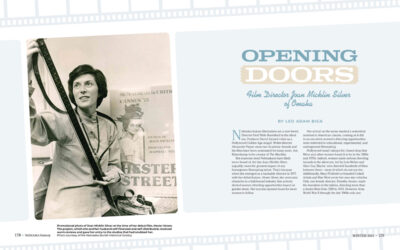J. Sterling Morton really wanted to spice up the 1874 State Fair. His solution? A massive exhibition of crops.

J. Sterling Morton, as president of the State Board of Agriculture, in April 1874 issued an appeal for agricultural exhibits for the upcoming Nebraska State Fair, to be held in Omaha. The Nebraska Herald (Plattsmouth), of May 21, 1874, and other state newspapers published his request:
At the city of Omaha, September twenty-ninth (29), 1874, the Nebraska State Fair will open. With proper interest on the part of our farmers and fruit growers, the season having been propitious, that exposition will be a complete demonstration of the wonderful fertility of Nebraska soil, and its perfect adaptability to the production of all cereals, root crops and fruits incident to this latitude. Every citizen can do something to forward the affair towards success. Every citizen has an interest in helping to the best of his ability, and each farmer in the State will certainly have some product worthy of exhibition. . . . [Here] in the West, where the soil is rich and easily tilled, we too often leave extraordinary qualities and quantities in production to fortuitous circumstances. Can we not turn over a new leaf in this regard, and make judicious efforts to demonstrate the full capacity of this soil?
If without especial effort seventy and eighty bushels of corn is frequently raised upon an acre of ground, why not by extra tillage, produce an hundred bushels, and even an hundred and forty of the same grain upon the same breadth of land? And whereas, with ordinary cultivation, forty bushels of wheat have been given to the acre in Nebraska quite frequently, why not endeavor by superlatively careful sowing and harvesting to produce seventy-five bushels?
The premiums offered by the State Board of Agriculture are liberal and will be promptly paid when the awards have been made. In addition to this incentive the Union Pacific and Burlington and Missouri River railroads offer special inducements, as purchasers, at rich and remunerative rates, of specimens and samples from all premium or extraordinary large and fine crops. Will not numbers of the farmers of Nebraska endeavor this year to cultivate premium crops and bring samples of the same to the State Fair?



